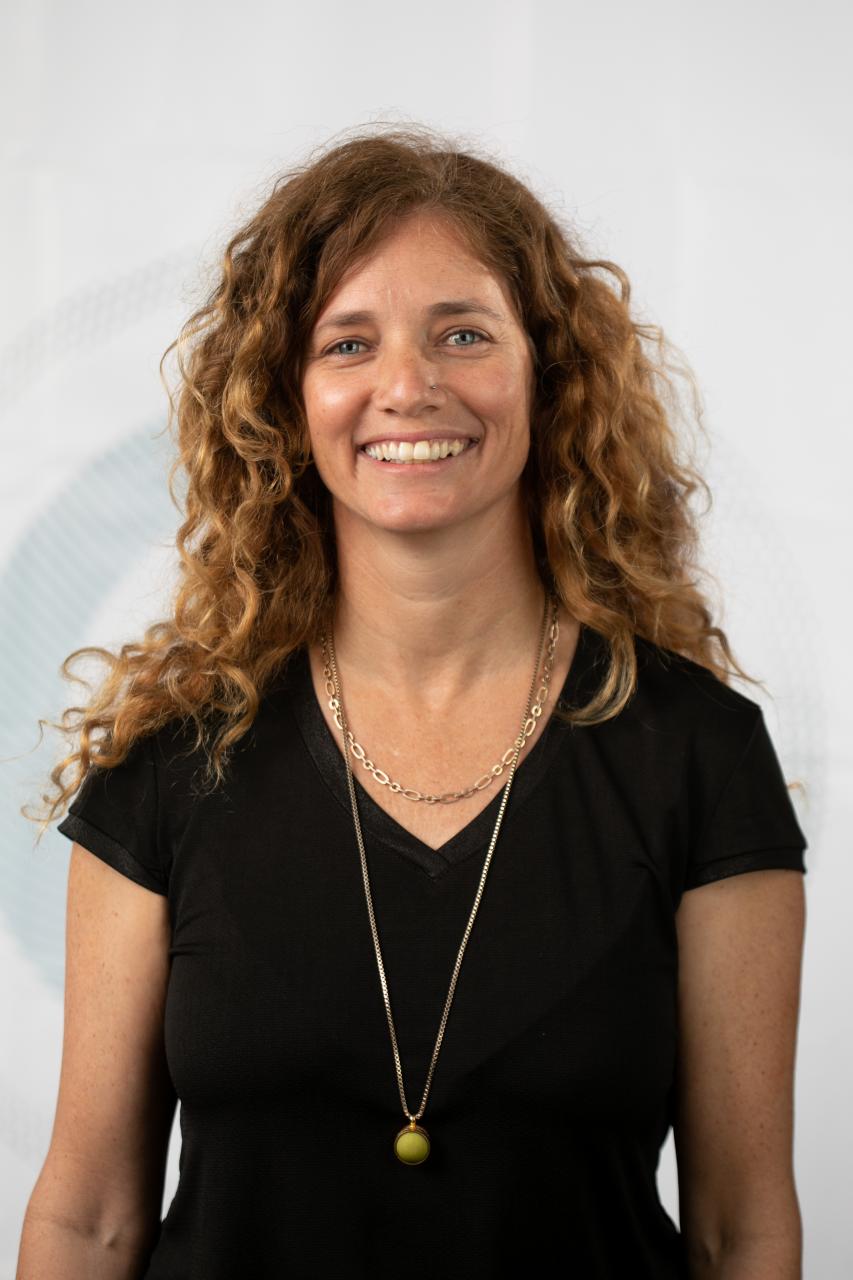Meet Our Graduates: Dr. Hadas Sibony Benyamini
When and where did you complete your degree?
I began my studies at the Faculty of Medicine after completing two degrees in Plant Sciences at the Faculty of Agriculture and at the Weizmann Institute in Rehovot. When I moved back up north, I decided to change my research field and started a PhD in developmental biology in Prof.) David Enshell-Seijffers's lab. I completed the degree in 2019.
Where do you work today, what does the company do, and what is your role?
Today, I am a Technology Analyst and Lab Manager at the FRESH START food tech incubator.
FRESH START is a technological incubator in the FoodTech sector, established about four years ago in Kiryat Shmona by the Israel Innovation Authority and four additional partners: Tnuva, Tempo, OurCrowd, and Finistere Ventures.
The incubator's goal is to invest in the early stages of FoodTech startups, sometimes even at the initial idea stage, with the aim of bringing them within two years, under the incubator's program, to the Proof of Concept (POC) stage and enable them to raise money for the next stages outside the incubator.
From Seed to Plate – the incubator supports companies in various fields, such as assisting in planning milestones, technological development, business mentoring, and fundraising. The goal is to bring the company from the concept and POC stages to a pilot and, in the future, to a final product. The entrepreneurs or ideas can come from academia, existing companies, private entrepreneurs, and from many areas within the food value chain: alternative proteins, cultured meat, biodegradable and smart packaging, recycling of agricultural and food industry waste, new food ingredients, personalized nutrition, and more.
As a Technology Analyst, I meet with researchers in academia or private entrepreneurs, learn about their research, and together with the wonderful FRESH START team, which includes the incubator's CEO, Noga Sela Shalev, Dr. Tammy Meiron (CTO), and Daniel Gamso (Director of Business Development), we conduct due diligence on the companies/ideas presented to us and work with them to build the incubator program and establish the company. After the company is established, we continue to provide technological and business support.
How has a graduate degree helped you get where you are?
A PhD allows for deep exploration and learning in a specific field through various approaches. Initially, you develop the ability to conduct literature reviews and be critical of the information and results. From these reviews and critiques, you learn how to design experiments correctly, think about controls and methods that allow you to obtain reliable, reproducible, and meaningful results for your project. In my view, reading papers is essential throughout the degree and beyond, as it helps you stay updated and knowledgeable in your field and pushes your research capabilities forward.
Independent work and daily research develop your thinking skills, versatility, and flexibility in any field you might pursue in the future. Also, learning a variety of methods and protocols provides proficiency in a wide range of areas.
Working with your supervisor and collaborating with your lab team over several years is important for learning about yourself—your strengths and areas for improvement—and how to get along with others during research. This is something that will be valuable later on, whether in industry or other academic environments.
Additionally, I highly recommend attending conferences, participating in seminars and courses outside of your research field. All of this helps to expand your networking, general knowledge, and presentation and communication skills with other researchers. Of course, it also helps improve your English skills, which are essential in both academia and industry.
What is your best advice for students?
First, I recommend choosing a lab based on the personality of the supervisor and the team you will be working with. During the degree, you spend more time in the lab than at home, so it's important to have a pleasant, supportive, and advancing environment. The supervisor plays a crucial role in pushing you forward and guiding you through the learning process, especially in the beginning.
For me, the research topic is secondary. Once you delve into a field for a long time, you start to connect with it or find a niche that suits you best, and that’s easier to change than switching supervisors or lab members.
Another piece of advice is to invest in your personal development throughout the degree—improve your English, create connections both within and outside the Faculty, study courses that can advance you in other areas, and broaden your horizons.
Do you have any significant experiences from your degree?
My degree was very long and intense, filled with both more and less successful experiences. I remember that after finishing the degree, I traveled to a GRC (Gordon Research Conference) in the U.S. with my lab mate and presented my research in a lecture during one of the seminars at the conference. I remember the excitement, the experience of standing in front of an audience and sharing my research. I also enjoyed the whole week of meeting researchers from different fields, along with enjoying amazing trips and stunning landscapes.
מת




